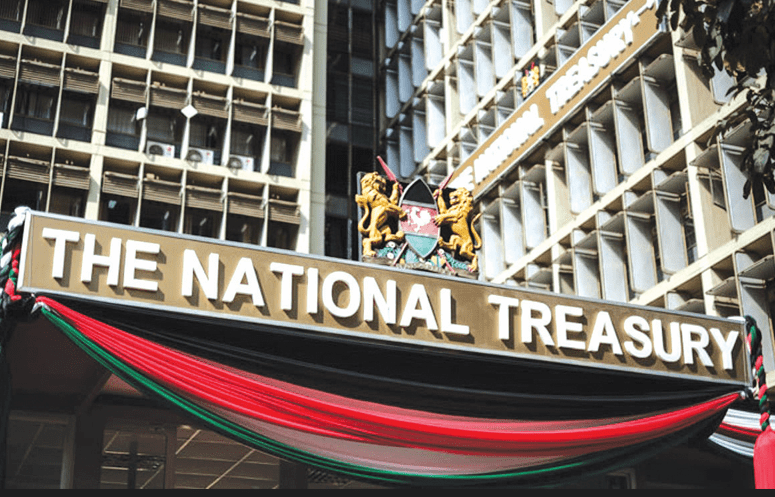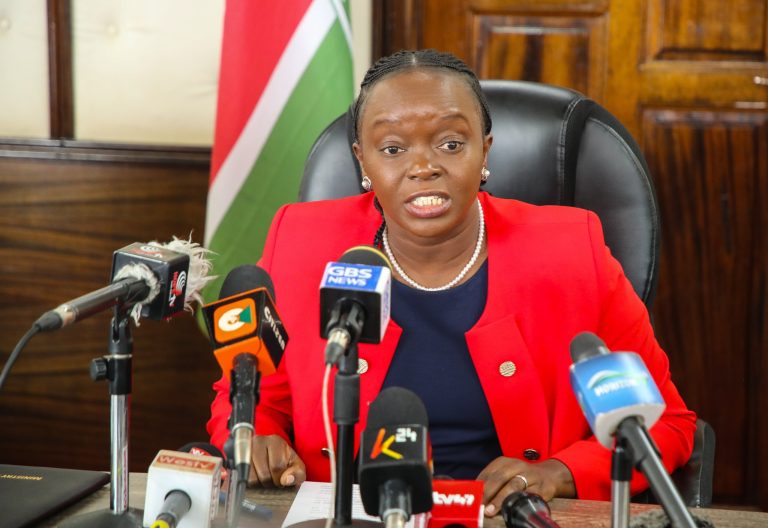Hope for property sector as lending taps re-open

The building and construction sector is poised for an upswing in activity following the move to reopen financial flows into the sector by uncapping interest rates.
The change follows a decline in financing that saw the sector’s contribution to the country’s GDP halve from 8.8 per cent in 2016 to 4.1 per cent in 2018. “The lifting of the caps has prompted renewed interest by investors in the Kenyan market, which marks a distinct and new development’, says Kfir Rusin, Managing Director of the East Africa Property Investment Summit.
He says following the introduction of the interest cap in 2016, international and local investors shied away from investing in property funds, particularly in the high-end residential, retail and commercial segments. “Only logistics investments withstood the financial clampdown,” says Rusin.
Optiven Real Estate Company CEO George Wachiuri says the removal of the interest capping will allow more Kenyans to borrow and finance their real estate needs, boosting sales for the developers. “We see a far much better year in doing business for the real estate industry this year compared to last year,” he says.
However, former Kenya Private Sector Alliance (Kepsa) chairman Lee Karuri says banks are taking time to adjust and are talking to applicants. “It takes time; borrowers were out of the market for two years,” he says.
Loan applications
The KPSA trustee says banks are now reviewing their internal processes, analysing the market and assessing loan applications afresh. “We are positive the lending taps will open by next month and in any case not later than April,” says the architect.
Central Bank of Kenya’s Monetary Policy Committee cut interest rates by 25 basis points, to 8.25 per cent last month, making it the second time the rate has dropped since the repeal of the interest rate cap. CBK governor Patrick Njoroge said recently that the economy was performing way below its potential. “There are no specific timelines for banks and financial institutions to synchronise loan rates with its benchmark rate,” he said.
According to Victor Amadala, a researcher, Kenya’s economy is expected to grow at a faster rate this year, thanks to a number of positive factors, including repeal of the interest cap law in November.
Others are heavy rainfall experienced during the last months of the year and favourable government policies that support small businesses.
Over the last three years, the growth in property market activity has slowed as commercial credit from banking institutions has tightened. According to the Bank Supervision Annul Report by the Central Bank of Kenya, the net growth in commercial loans fell to eight per cent following the introduction of the rate cap in 2016, which was just one 12th of the 96 per cent growth rate recorded in 2015.
The scrapping of interest rate law is expected to enhance overall credit flow to the private sector, brewing economic activities, job creation and improved income for households.
Wachiuri and Karuri also say President Uhuru Kenyatta’s order to state agencies and counties to clear pending bills is also expected to boost capital supply in the economy, boosting the expansion of businesses including to cash-strapped contractors. “It will help ease the liquidity crisis in the economy,” adds Karuri.
The current political stability, massive development of infrastructure across the country is also encouraging developers to move out of the city and build estates in the suburbs. “These houses are cheaper and affordable to Kenyans, who have now realised and accepted that they can live in places such Kitengela, Kajiado, Ruiru, and Machakos and still comfortably work in Nairobi. This mind-set change will continue to boost real estate industry,” says Wachiuri.
UK investment inflows
The easing of the constraints on debt lending to developers and home buyers now comes as Acorn last month led the way in Kenya with the launch of its Sh4.3 billion to fund the building of environmentally friendly student accommodation for 5,000 students in the capital.
The bond, which is also being listed on the London Stock Exchange, is a significant step forward in the nation’s mission of expanding affordable housing and coincides with a parallel new flow of UK investments into the housing sector from the UK Africa Investment Summit. “The opening of new routes to housing finance and lifting of restrictions on debt financing mark material turning points for the real estate market, which has become notably subdued,” said Kfir of EAPI.
EAPI issued its outlook ahead of the seventh Annual East Africa Property Summit, to be held in Nairobi on 1st and 2nd April 2020, bringing together over 500 local and international investors from over 250 companies.
The stakeholders’ focus this year is on thinking differently in unlocking new financing routes, achieving competitive pricing, learning from emerging markets globally, and future proofing developments against cycles ahead.











